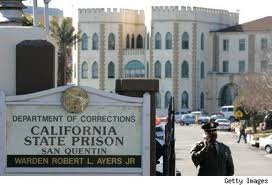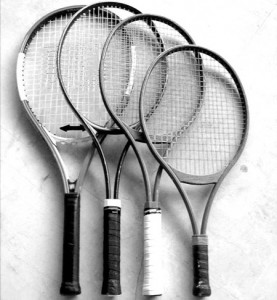There are constant debates about the merits of locking people up, as well as programs or services to make available to those who are indeed incarcerated. Is it all about retribution? Are we looking to rehabilitate? Maybe a combination?
We have a major prison problem in this country. Strange to say but we have more people in our prisons than any other country in the world. (granted, having them in real prisons versus the fake ones or worse, death camps in other countries is the better alternative). Instead of getting into a discussion about the overall nature of incarceration, we want to highlight a story that speaks to rehabilitation, personal development, and by extension, the development of our society.
We saw a piece from ESPN’s Outside the Lines (a terrific program) a couple of years back about tennis club members who started a program that entailed them playing tennis against inmates at San Quentin State Prison in San Francisco. (San Quentin is one of the largest and most well-known prisons in the United States.) No country club is San Quentin. But a country club sport, tennis, serves as the foundation for some wonderful personal and interpersonal experiences that show how sport, i.e. the opportunity to test oneself and to interact with others, can be the best tool to change one’s circumstances.
We just read a new, great piece by Professor Marc Howard of Georgetown University about his opportunity to interact with the inmates, on and off the court, please check out “Lessons in integrity with San Quentin State Prison’s tennis team.” A short excerpt is below.
Excerpt
…the motto of the Inside Team is “integrity.” “Most people are in prison because they made bad choices, not because they’re bad people,” he told me. The team’s objective is to use tennis as a tool to be good people.
When it came time to leave, Raphael gathered the full team together — insiders and outsiders — and gave an eloquent speech. He told us about how much it means to them for people to visit San Quentin, how much this helps them to lead good lives and be good people, and how much it motivates them to live an honest life, with integrity, on the outside someday.
His speech helped me to realize the universal humanity in tennis. The game continues to expand to new communities and new continents. And my experience in San Quentin showed me that if we believe that prisons should be about rehabilitating people who have made mistakes and paid their “debt to society,” while preparing them for their eventual freedom — as I think we should, even if this view has been neglected in recent decades — there are few better activities than tennis to achieve that goal.
Marc Howard, a former practice partner of Ivan Lendl’s and a two-time captain of the Yale men’s tennis team, is a Professor of Government at Georgetown University.
Again, to read the full story, please visit http://sportsillustrated.cnn.com/2011/tennis/06/16/san.quentin.prison/index.html#ixzz1PXky6jh3





Recent Comments